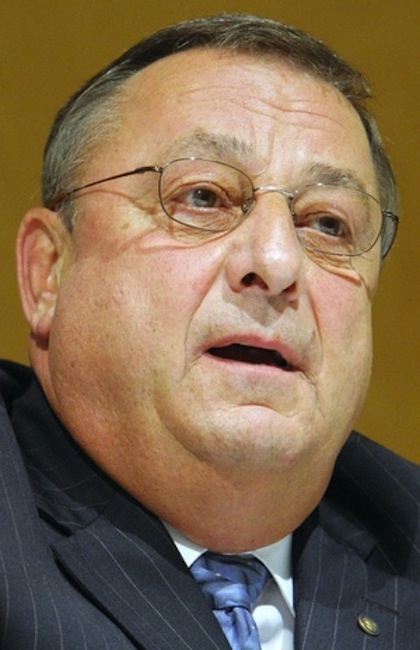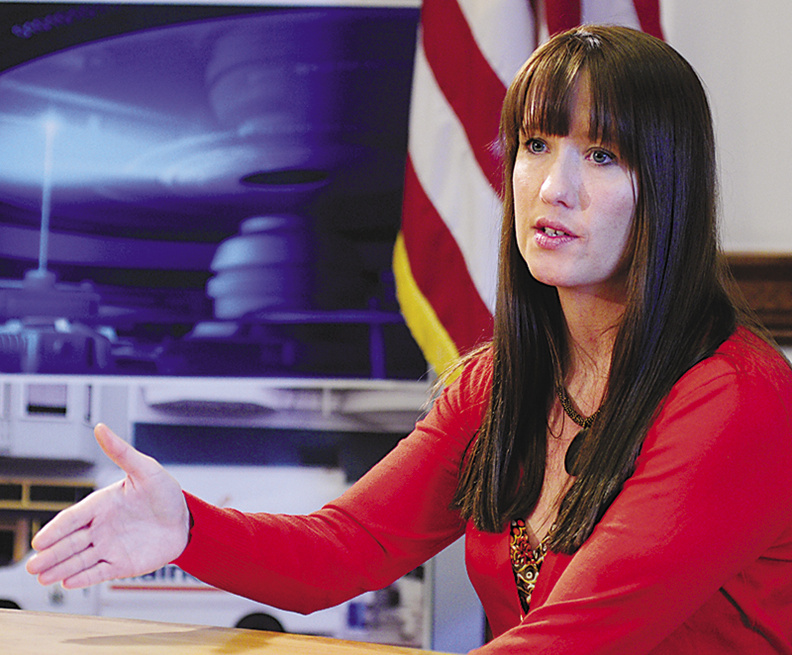AUGUSTA – Gov. Paul LePage’s administration will no longer comment in stories published by the Portland Press Herald, the Kennebec Journal and the Morning Sentinel, his spokeswoman said Tuesday.
The new policy follows the newspapers’ publication of a three-day series of articles this week examining LePage’s top environmental regulator and how her department’s actions have benefited her former lobbying clients in private industry.
LePage’s spokeswoman, Adrienne Bennett, informed a Press Herald reporter of the new policy following a request for the governor’s public events calendar. Bennett would not provide the calendar, a public document, and said the administration would no longer participate in stories reported by the three newspapers.
Bennett said MaineToday Media, the newspapers’ parent company, “had made it clear that it opposed this administration.”
She would not elaborate, saying that responses from the administration could be gleaned from reports by The Associated Press or through document requests using the Freedom of Access Act.
Another Press Herald reporter asked Bennett on Tuesday to comment on a story about Medicaid expansion. Bennett told the reporter she would not speak to the newspaper about the issue.
“Not to the Portland Press Herald,” she said.
The no-comment policy does not appear to include all state agencies.
Steve McCausland, communications officer for the Department of Public Safety, said he was not aware of any such directive. He said his department will continue to communicate with the Press Herald and its sister publications.
The new policy in the governor’s office follows the newspapers’ publication this week of an investigation by the Portland Press Herald/Maine Sunday Telegram, which found that LePage’s environmental protection commissioner, Patricia Aho, a former industrial and corporate lobbyist, has scuttled programs and fought laws that were opposed by many of her former clients in the chemical, drug, oil, and real estate development industries.
Bennett, commenting in an article published Tuesday detailing reactions to the series, accused the newspaper of having a political agenda. She said the administration planned to respond to the series by submitting a column to the newspaper.
Aho also rebutted the allegations in the stories, saying her past work as a lobbyist has no impact on how she does her job. Republican lawmakers defended Aho, as well.
“Commissioner Aho’s actions have been consistent with the rule of law while balancing the needs of our economy,” said Rep. Kenneth Fredette, R-Newport, the House minority leader.
Democrats, meanwhile, said the findings in the report are troubling.
Aho granted the Press Herald/Telegram one interview during the seven-month reporting of the series and declined subsequent requests.
Cliff Schechtman, executive editor of the Press Herald/Telegram, said Tuesday that the newspapers will continue to scrutinize state agencies.
“Our mission is to shine the light on how government impacts the lives of Mainers,” Schechtman said. “No threats of gag orders from the LePage administration will stop us from doing probing journalism on behalf of citizens.”
LePage’s staff has declined repeated requests from the newspapers to interview the governor regarding a variety of issues in the first two years of his administration. He has communicated with the newspapers primarily through his spokespeople, and nearly all interviews with state officials are cleared through the governor’s communications staff.
The communications staff has given limited information about the governor’s public events schedule since he took office. In May, Bennett removed reporters from a ceremonial signing of a bill that requires public school personnel to receive training in suicide prevention and awareness. The bill received unanimous support in the Legislature and LePage pledged $44,000 from his contingency account to fund the effort.
Rep. Paul Gilbert, D-Jay, the bill’s lead sponsor, told the Press Herald that he was surprised that the governor’s staff didn’t want press in the room. Gilbert also noted that LePage complained during the ceremony that the press wouldn’t cover the event because it was a positive news story.
LePage has had a rocky relationship with the press since the 2010 gubernatorial campaign, storming out of a news conference amid questions about his paying property taxes in Maine.
LePage also said that he would like to punch a reporter from the Maine Public Broadcasting Network, during a taped interview with the network.
He has voiced his displeasure with newspapers on numerous occasions and to varying audiences.
He blasted the press during his inauguration speech in 2011. In 2012, during a presentation at Waterville Junior High School, LePage told 150 eighth-graders that reading newspapers in Maine is “like paying somebody to tell you lies.”
In February, during a reading with schoolchildren at St. John Catholic School in Winslow, LePage said: “My greatest fear in the state of Maine: newspapers. I’m not a fan of newspapers.”
Tension between the press and governors is not uncommon.
In 2011, journalists covering the Florida Capitol complained that Republican Gov. Rick Scott limited access to public events that were previously considered open, and shut out reporters who had written critical stories.
In 2004, The Baltimore Sun filed a federal lawsuit against Republican Gov. Robert Ehrlich Jr. of Maryland after Ehrlich banned state officials from speaking to two reporters who had written critical stories.
Steve Mistler can be contacted at 620-7016 or at:
smistler@pressherald.com
Twitter: @stevemistler
Send questions/comments to the editors.



